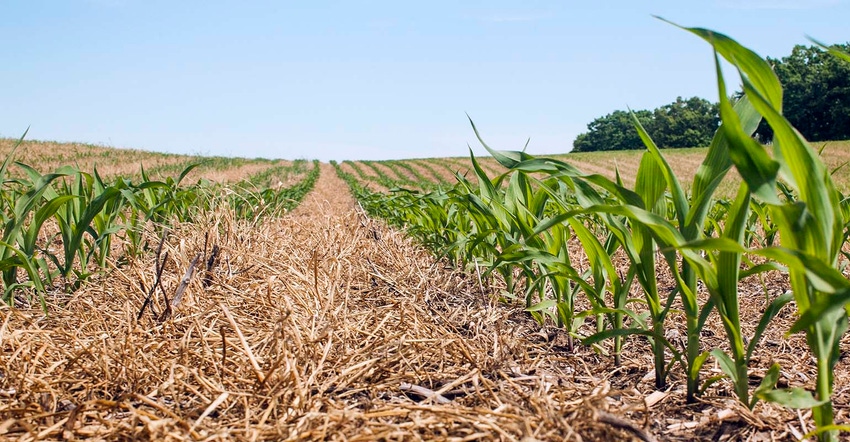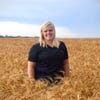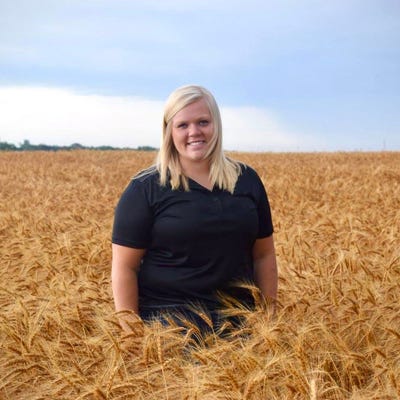Farmers from four countries come together to discuss regulatory issues, sustainability and trade.

The public might think farmers are most worried about production, the weather, labor and other operational challenges. However, for farmers who participated on a panel discussion at the World Food Prize, that’s not necessarily the case.
The United Nations challenged the world in 2021 with an ambition to transform global food systems. However, we are not on track to meet the 2030 Sustainability Development Goals during this decade of action, and it is more vital than ever for a variety of farmer voices to be heard.
CropLife International, CropLife America and the Global Farmer Network held a roundtable on Oct. 20 at the 2021 Norman E. Borlaug International Dialogue as part of the World Food Prize. The event recognized the challenges and solutions faced by farmers across the world today.
Policy and regulations
Today’s farmers are producing more with less, thanks to the abundance of technology and tools available, explains Alana Koch, Canadian farmer who grows wheat, canola, flax, peas and lentils. “I worry about policymakers taking away our tools.”
“Frankly, the number one thing I worry about on the farm is policy,” Koch says. “I worry about how it has been getting in the way of allowing us to operate and use sustainable practices.”
Farmers in Mexico, like Alfredo Gutierrez, are already seeing the harmful effects of policy limiting access to important farming tools. The Mexican government’s recent decisions around biotechnology and pesticide use concerns farmers who are not in support of the non-scienced based actions.
In January of 2021, Mexico published a decree to ban the use of glyphosate and GE corn for human consumption. The use of herbicide will be phased out over the next four years.
“Here in Mexico, the prohibition of biotech and some chemicals are affecting greatly our production,” Gutierrez says. “They are limiting the tools to produce food…, which will lead to agriculture like we were in the 1950’s.”
Overall, these farmers want to have a seat at the table during these policy discussions.
Environmental sustainability
Gabriel Carballal, a Uruguay farmer of corn, wheat and soybeans as well as beef cattle, has seen the benefits of regenerative agricultural practices on his farm. He implements cover crops, crop rotations and zero-tillage on his operation. He encourages other farmers around the world to do the same.
“We usually put barriers in front of ourselves when we don’t use a technology,” Carballal says.
He says if you learn the technology and try to apply it on your own operation, you may find it is a good fit. Around 90% of farmers in Uruguay use similar techniques.
Farmer Knud Bay Smidt sees a different situation in Denmark and the rest of the European Union. He uses a no-till system on his operation but is one of very few to implement sustainable practices.
“As a farmer in the European Union, I am on one hand blessed with a relatively stable market and infrastructure,” Bay Smidt says. “But on the other hand, is my feeling that the European Union is going backward now, as least with what is related to agriculture.”
Bay Smidt goes on to explain how the EU’s Farm to Fork initiative still wants farmers to promote old-fashioned extreme tillage as the solution to today’s challenges. Similarly, EU farmers restrain from using gene technology, which means more pesticides are needed to produce a crop.
Bay Smidt hopes scientific facts will support farmers like him in the European Union and the concept of no-till will be seen as part of a solution to handling some of the challenges of food production.
Trade
“We absolutely need trade to have a market for our products,” says Koch. “Otherwise, it would be a waste of resources.”
Koch explains that science-based trade allows Canadian farmers to maintain the access to tools and technology to maintain sustainable practices while still having enough products to export around the world.
Mexico’s limitations on innovations and technologies in the areas of biotechnology and pesticides also affect trade.
“Mexico exports a lot of food, especially fruits and vegetables,” says Gutierrez. “But for animal feed, we need to import almost everything – soybeans and corn from the U.S. and canola from Canada.”
Fair trade deals are crucial to the success of dairy farming in Mexico to ensure farmers can get access to the feedstuffs they need to maintain a productive herd.
When it comes to the European Union, Bay Smidt sees more reliance on trade because of regulatory issues limiting production.
When referring to the production limitations of non-GE crops, he says, “What’s most important is the idea of what could’ve been if it had been available. One can only guess.”
About the Author(s)
You May Also Like




.png?width=300&auto=webp&quality=80&disable=upscale)
